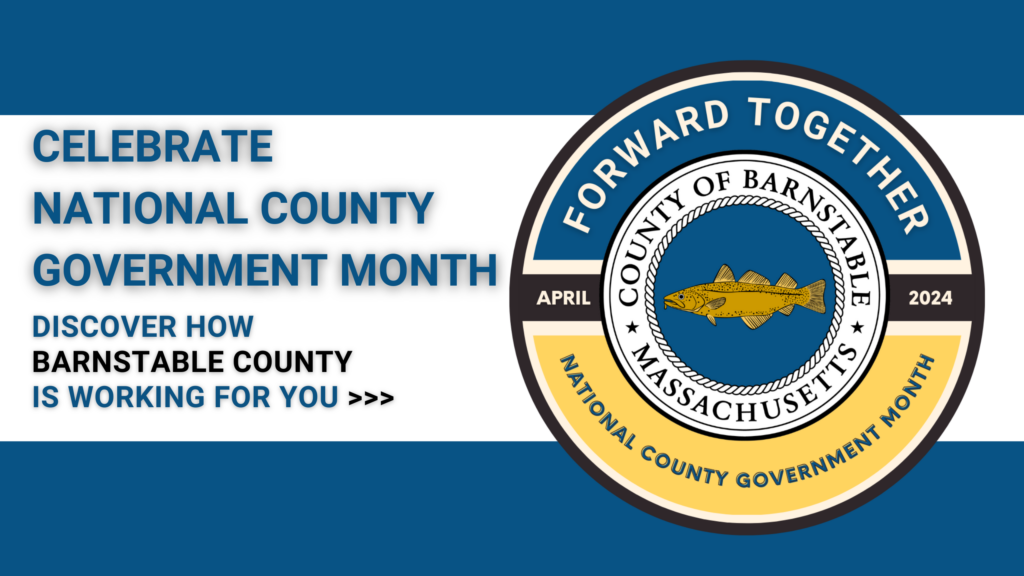
Cape Cod Businesses Report Continued Impacts due to COVID-19 Pandemic

Results from third business impact survey round out a comprehensive data collection effort
FOR IMMEDIATE RELEASE (March 8, 2021) — Results from a third survey issued to local business owners by the Cape Cod Commission and the Cape Cod Chamber of Commerce complete a comprehensive effort to collect data that will help to understand the impacts felt by our business community due to the COVID-19 pandemic.
Four hundred and fifty respondents representing businesses and non-profits from every town and the major industries on Cape Cod completed the third survey, issued in early January 2021.
The survey results indicate continued impacts to revenue, operations, and the region’s workforce. Over 85% of respondents reported year-over-year losses in the second quarter of 2020. Businesses rebounded a bit during the summer, although nearly 30% of respondents reported third and fourth quarter losses of 50% or more.
By December 2020 most respondents had reopened, although less than half were open fully. Nearly 10% are fully closed due to the pandemic, but the majority of those anticipate reopening.
More than half of respondents took advantage of the Paycheck Protection Program. In the first survey, issued in the spring of 2020, more than half reported that they were leveraging personal savings to keep their businesses afloat. By the time the third survey was issued, that number dropped to 40%.
Cape Cod faced unprecedented levels of unemployment due to COVID-19. Businesses and organizations closed, reduced hours, and shifted operations online where possible, but some employees remained furloughed or laid off through the end of the year. Many more remained working on reduced schedules. Some businesses struggled with employees being unable or unwilling to return, citing concerns about health and safety, income, and childcare.
“This series of business surveys is also unprecedented in getting firsthand information on how the Cape’s economic condition is changing. This work informs our advocacy and business support services,” says Wendy Northcross, Cape Cod Chamber of Commerce CEO. “Cape Cod’s local businesses have shown their ability to adapt over the course of these last twelve challenging months.”
Looking ahead, the most requested resource among respondents is support for communications, marketing, social media, and online sales as businesses need to reach their customers online more effectively. Many respondents intend to increase online operations to expand customer reach and accommodate social distancing, but many business owners are not yet sure how the pandemic may change their 2021 business plans.
“Data collected at several key points throughout the year allowed us to thoroughly examine the impacts felt by our local businesses and target assistance,” said Kristy Senatori, Cape Cod Commission Executive Director. “Using this information, the Commission will continue to collaborate with regional partners and the local business community to support a resilient Cape Cod economy.”
Despite the high levels of uncertainty, many Cape Cod businesses continue to adapt to the challenges of the pandemic and efforts to recover will carry on well into 2021. The Cape Cod Commission and the Cape Cod Chamber of Commerce will continue to work together to support economic recovery and develop and promote strategies to enhance resiliency of the local business community and regional economy.
Results from the three business impact surveys can be found at: www.datacapecod.com
Overview
- 450 respondents, representing all fifteen towns
- Survey 1: 370; survey 2: 405
- Top industries by response: Retail (19.6%); Restaurants and Food Service (18%); Accommodations (9.4%)
- Thirty one percent of businesses are fully open; 38% are open in a limited way; 21% are closed seasonally, and just over 10% are closed due to the pandemic
- For those closed to the pandemic, 59% anticipate being able to reopen, 33% aren’t sure, and nearly 9% do not plan to reopen
- The impact felt by most respondents (72%) was enforcing social distancing and mask regulations, followed by 70% who faced increased cleaning and sanitation, which increased costs for nearly half of the respondents. Half reported a decline in customers, clients, and sales.Revenue losses
- Respondents to the survey reported year-over-year revenue change by quarter. Compared to 2019, over 80% of businesses reported losses in the second quarter; more than a third reported Q2 losses of more than 75%. During the summer, businesses rebounded somewhat, though nearly 30% of respondents still reported Q3 and Q4 losses of 50% or more.Workforce Impacts
- Twenty percent of respondents had to lay off employees during the pandemic; just under 11% had to furlough staff. Thirty-six percent of respondents had difficulty getting employees to return to work; just over 100 respondents said employees cited health and safety concerns as their deciding factorManaging Impacts
- In the spring, 62% of respondents leveraged personal savings to mitigate the financial impacts of the pandemic; by the third survey, that percent of respondents fell to 40%
- In the summer, half of all respondents participated in a program like PPP to reduce impacts. For those who applied for PPP, 64% of respondents in the most recent survey were approved for the full amount, and only 3% were denied; just under 80% also expected by fully refunded and therefore were able to maintain their workforce
- In terms of non-financial assistance, by the summer, 52% of respondents needed or had already leveraged support with digital strategies like social media and communications, and that number rose to 67% by the third survey.
- The CCC engaged with Boston-based consultant Revby in response to this need with industry-specific webinars. The webinars were open to all Cape Cod business owners, but are especially relevant for our most vulnerable industries – retail, restaurants and food services, accommodations, arts/culture/recreation, and service-based industries (service-based businesses include spas, beauty salons, landscaping, housekeeping). Workshop materials are available at capecodcommission.org/business.
###



